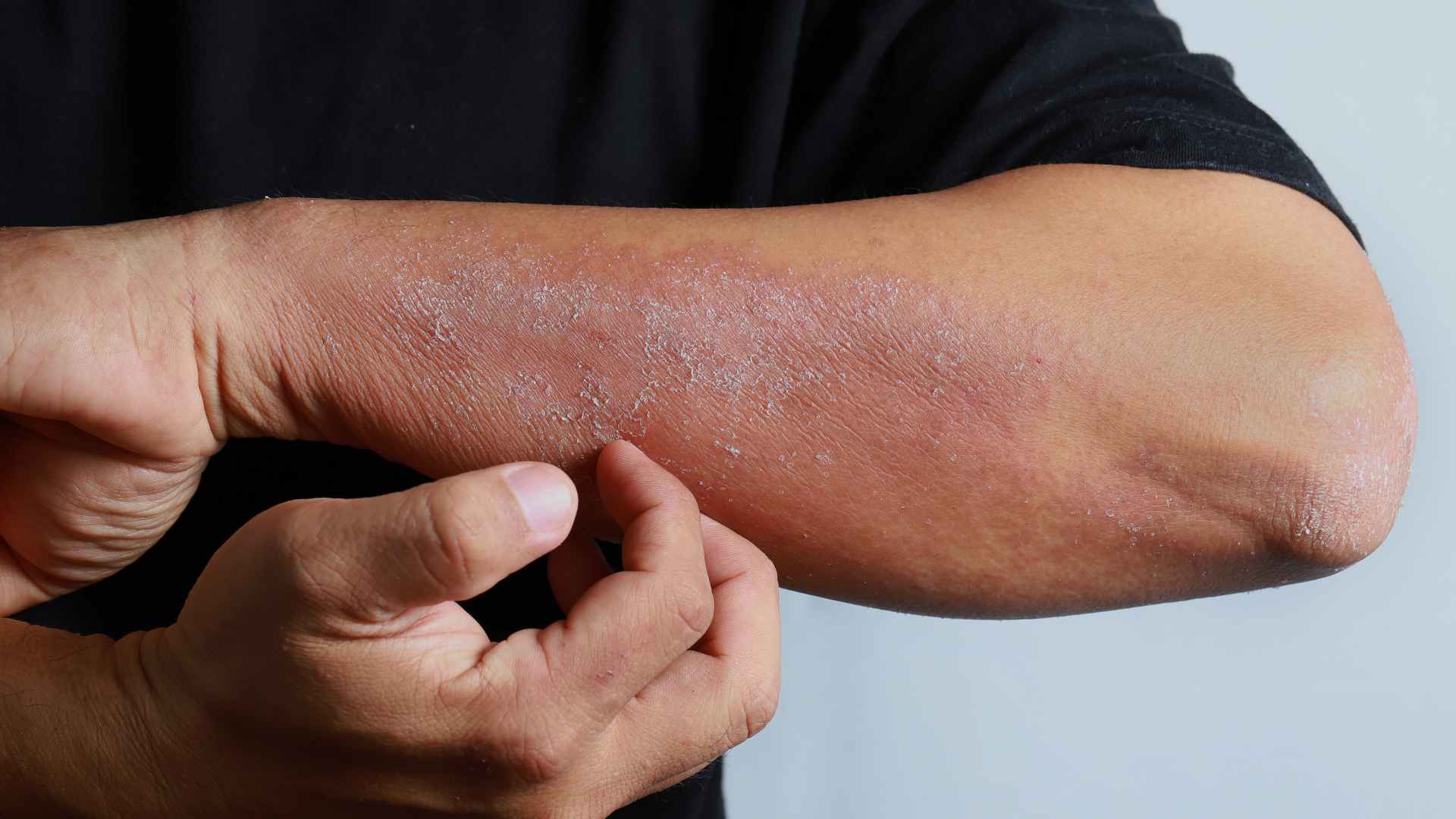Monsoon Allergies – Managing Skin Irritations

Prone to allergies? Monsoon can be another challenge for you. The moist weather paves the way for allergens and fungal infections. Let’s understand the symptoms and explore a couple of tips to deal with allergies and fungal infections. Let’s read on.
UNDERSTANDING ALLERGIES
Allergies in monsoon usually occur due to an increase in humidity and the allergens that are present in the air. Among the allergens, pollen, dust mites, fungi, and mold spores are the common ones. These allergens thrive in moist environments. When these allergens come in contact with the skin or scalp, they can lead to skin irritations and trigger allergic reactions.
SYMPTOMS
REDNESS AND RASHES
Red and inflamed rashes can be seen on the skin if affected by the allergy. These can be patchy and can spread across the entire body. Scary though!
ITCHY SKIN
This is one of the most common symptoms of an allergy. The allergy causes intense itching of the skin. This can affect the legs, arms, face, and neck areas.
HIVES
At times you might have noticed raised and itchy welts can develop on the skin after catching an allergy. These are known as hive s.
DRY AND FLAKY SKIN
Monsoon does not mean it’s just damp. Some individuals might experience dry and flaky skin due to the allergens. If they are suffering from an existing skin condition, the allergy might worsen it.
TIPS
With certain simple tips and precautions, you can avoid allergies and skin irritation. Let’s take a look at some of the tips to manage and avoid them.
KEEP THE SKIN DRY
Good hygiene is the key to avoiding allergies in monsoons. The damp weather can worsen the skin conditions and hence, you need to keep it dry. Pat your skin dry with a clean towel whenever it gets wet. Make sure not to rub the skin aggressively.
WEAR BREATHABLE CLOTHING
Wear lightweight clothing which is not too tight for your skin. This ensures ventilation and airflow and does not cause excessive sweating. This allows your skin to breathe and avoids any sort of irritation.
STAY HYDRATED
Drinking an adequate amount of water helps you stay hydrated, and to maintain healthy skin. Healthy skin is less prone to irritations and allergies. Water flushes out the toxins and moisturizes the skin from within.
AVOID SCRATCHING
A big temptation, but please avoid it. Scratching the irritated skin can lead to further infections and sometimes the infections can get severe.
USE MILD SOAPS AND CLEANSERS
Harsh soaps and cleansers will strip your skin of essential oils and moisture, leaving it dry. This dry skin is easily prone to irritation. Use mild soaps and cleansers that are suitable for sensitive skin. Avoid using scrubs and exfoliants in monsoon as they can expose the skin and cause irritation.
MOISTURIZE REGULARLY
A good quality, water-based, and non-comedogenic moisture is all you need to soothe the skin and lock in the moisture. Look for moisturizers with ingredients that have skin-soothing properties. Apply the moisture after taking a bath or whenever the skin gets dry.
DITCH DAMPNESS
Staying in wet clothes is a royal invitation for fungal infections. In case you get caught up in the rain or your clothes get wet for any reason, change them! Get out of the wet clothes as soon as possible as the dampness and moisture can lead to a fungal infection. Doesn’t hurt to carry an umbrella or a raincoat when going outdoors!
ANTIFUNGAL POWDERS
These powders work wonders for your skin. Dust the antifungal powder on areas that are more prone to sweating. These areas can include underarms and feet. The powder keeps the skin dry by absorbing the moisture and further prevents fungal infection.
Monsoon brings a fair share of allergies and irritations that can affect your hair and skin. With proper knowledge and care, they can be managed with ease. Keeping your skin clean and dry is the key. Every individual has a different skin type, so allergies and infections affect everyone differently. Make sure to visit a dermatologist in case you notice any allergy and fungal infection symptoms.
